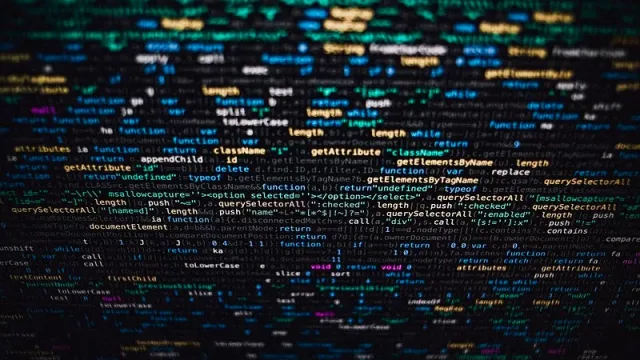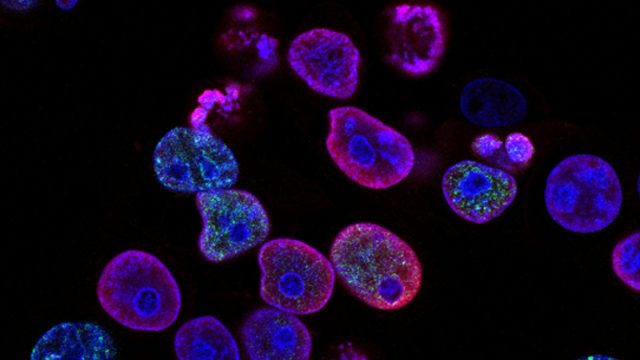Title: The Reemergence of Vaccine Nationalism
The race to develop pharmaceutical products targeting COVID-19 has quickly expanded to encompass hundreds of research projects. As of June 2020, there were over 140 vaccine candidates in development, 20 of which were in clinical trials alongside more than 200 drugs being considered for therapeutic purposes.
As some governments began narrowing down the roster of projects receiving priority status in late spring, the first hints of “vaccine nationalism” appeared. The expression is linked to agreements that reserve the bulk of emerging vaccines for a limited number of countries, traditionally in the developed world. While these strategies are not new, they have become a recent hallmark of negotiations during large-scale outbreaks of vaccine-preventable diseases. If left unaddressed, vaccine nationalism can have serious consequences for equitable access to the first COVID-19 vaccines to come to market.
Consider what happened during the flu (H1N1) pandemic in 2009. This was the first global flu pandemic in four decades, originating in mid-April 2009 in California. It lasted for several months and is now estimated to have caused over 16,000 deaths. By May 2009, developed countries had negotiated pre-production contracts that effectively allocated all doses of the vaccine that could be produced to their domestic markets. The United States alone negotiated the option to purchase up to 600,000 doses of H1N1 vaccines, at a time when global manufacturing capacity for pandemic vaccines was calculated to range between 1 to 2 billion doses. The companies that were party to the pre-purchase agreements for H1N1 vaccines in 2009 – Sanofi, GlaxoSmithKline, and Novartis – are now involved in multiple research and development (R&D) projects in the COVID-19 vaccine race.
In March 2020, another variation of vaccine nationalism emerged. German newspapers reported that the United States government had initiated conversations with CureVac, a German biotech company, to secure exclusive rights over the company’s COVID-19 vaccine candidate. While the negotiations did not get far, the possibility prompted the German government to quip that “Germany is not for sale,” further emphasizing that “if a vaccine is developed in Germany, then it is for Germany and the world.”
In mid-May, a similar episode went one step further. Paul Hudson, the CEO of Sanofi, one of the largest vaccine manufacturers in the world, stated that the United States had “the right to the largest pre-order” of Sanofi COVID-19 vaccines. Although Sanofi is a French company, it received funding from the Biomedical Advanced Research and Development Authority in the United States to develop a COVID-19 vaccine candidate. The existence of public sector funding was the main reason Mr. Hudson cited as the justification for the preferential treatment to be given to the United States market. A day later, however, following criticism on both sides of the Atlantic, Sanofi reversed its position and announced that no country would have priority access to emerging COVID-19 vaccines.
Law, policy, and geopolitics have systematically given selected countries the ability to negotiate agreements that further their interests to the detriment of public health in less developed economies. The laws that regulate and promote technical and scientific innovation – in particular, intellectual property rules – have been harmonized globally for the implementation of the same protection standards in developed and developing countries alike. While the current international legal infrastructure allows developing countries to adopt policies to procure pharmaceutical products at affordable prices, developed countries have consistently pressured the Global South to enter into bilateral or regional trade agreements that essentially strip developing economies of this power.
During the COVID-19 pandemic, there has been a return to international intellectual property as a locus for offsetting some of these imbalances. Several countries, including Chile, Ecuador, and Israel, have signaled that they intend to preserve their ability to obtain affordable COVID-19 drugs and vaccines through the compulsory licensing regime set forth in TRIPs article 31. This regulation enables national governments to grant non-exclusive licenses to third parties capable of manufacturing a drug or vaccine. While subject to several requirements, compulsory licensing allows governments to guarantee that their domestic markets will have access to welfare-enhancing products, even if patent holders neglect those markets or supply their products at prohibitively high prices. In a development that speaks to the magnitude of the ongoing outbreak, several powerhouse economies like Germany, Canada, and France – but not the United States – also took steps to facilitate compulsory licensing during COVID-19.
Mechanisms like compulsory licensing have been used sporadically in previous public health crises, especially in connection with HIV/AIDS drugs. However, they are unlikely to be of meaningful significance in the case of vaccines. Very few companies – in a limited number of countries – have the manufacturing capacity to produce vaccines. Whenever available, the first batches of COVID-19 vaccine will be inherently limited. Nationalist policies are bound to exacerbate this problem through unfettered use of contractual frameworks. If allowed to proceed, these approaches will once again disadvantage developing countries the most. In 2009, by the time developed countries moved to donate vaccine doses to developing countries, the worst of the pandemic had passed and no second wave was expected. A similar model in the coronavirus pandemic would be catastrophic for many of the world’s most vulnerable populations.
At the same time, the citizens of countries seemingly benefiting from nationalism by reserving doses of vaccine might not fare as well as expected. This is especially true of the United States, where Secretary of Health and Human Services Alex Azar has stated that the government does not intend to intervene to guarantee the affordability of coronavirus vaccines. If the nationalism game were to be played to its fullest extent and each country minded its own vaccine market, then the poorest and most disadvantaged citizens in the United States – especially Black and Latino populations, who have also shouldered the worst of the pandemic – might well have nowhere to turn if COVID-19 vaccines are commercialized at unaffordable price points. Similar concerns emerged during the Zika vaccine race, when the United States Army and Sanofi entered into preliminary negotiations to manufacture a vaccine candidate and no affordable pricing provisions were inserted into the contract.
The reemergence of vaccine nationalism underscores fundamental problems of R&D and vaccine governance at the transnational level. Intellectual property laws regulating the allocation of goods (vaccines) and principles of contractual freedom (untamed in pre-production agreements) exacerbate bargaining asymmetries across the developing-developed country divide. Moreover, they illustrate how, collectively, we have come to treat vaccines as privatized commodities, when they should instead be understood as global public goods – “goods with benefits and/or costs that potentially extend to all countries.” Even if they are developed by private or public-private entities, global public goods benefit populations across borders and markets and should not be treated as purely privatizable commodities. Failure to recognize this dimension of vaccines diminishes the socialization of their public health benefits.
In the long-run, it is critical to develop an international framework that restores vaccine development and distribution to their public good status. This model should prioritize the allocation of vaccine doses globally while ensuring that they are affordable for populations in need. Moreover, such a plan should be negotiated before a pandemic occurs, as countries, coordinating institutions, and negotiators operate remedially and with short-term goals in mind during crises. Without a pre-existing plan, nationalistic behaviors will likely continue to flare up cyclically, miring the goal of making vaccines available to those who need them the most, irrespective of geographical borders.
. . .
Ana Santos Rutschman is a law professor at Saint Louis University School of Law, where she teaches courses in health law and intellectual property. She is also affiliated with the Center for Health Studies and the Center for International and Comparative Law, conducting research on vaccine innovation.
Recommended Articles

This article examines the EU’s cyber diplomacy in Moldova’s parliamentary elections from September 28, 2025, which marked a new chapter in the bloc’s cyber diplomacy. Drawing on analysis of Russian…

Export controls on AI components have become central tools in great-power technology competition, though their full potential has yet to be realized. To maintain a competitive position in…

The Trump administration should prioritize biotechnology as a strategic asset for the United States using the military strategy framework of “ends, ways, and means” because biotechnology supports critical national objectives…